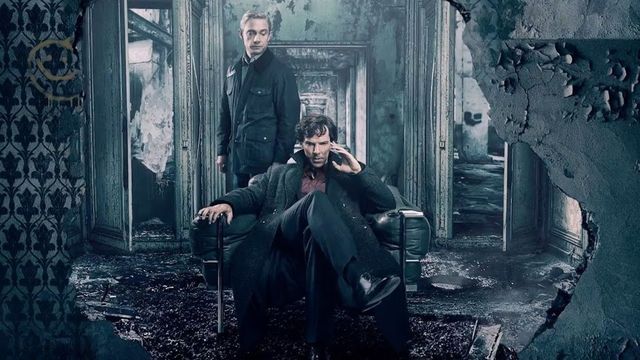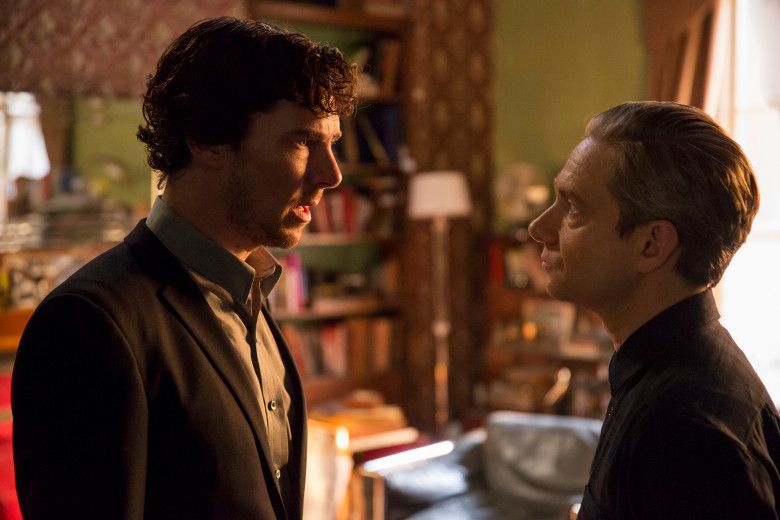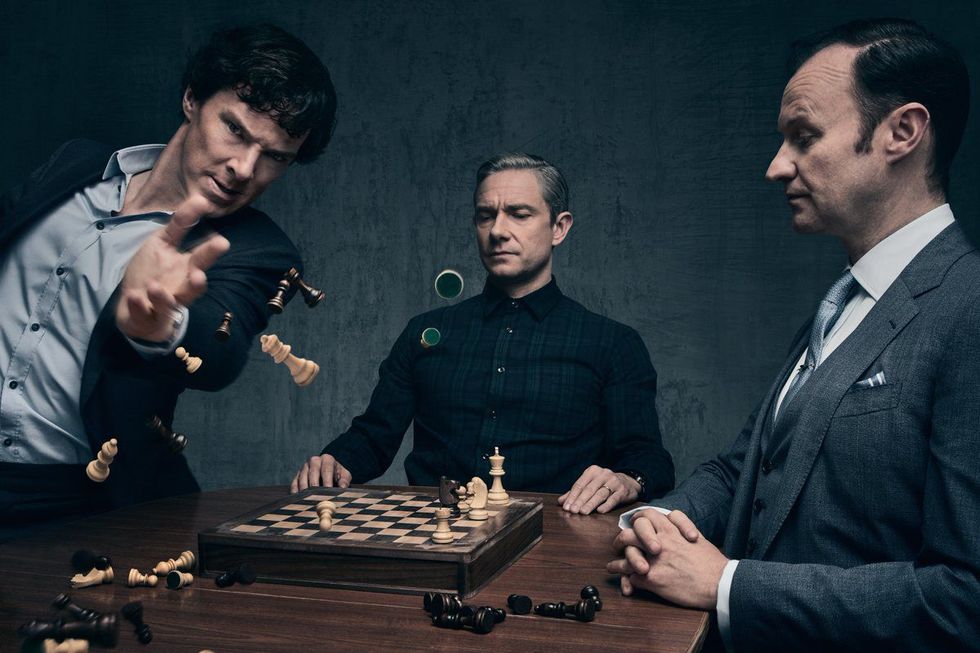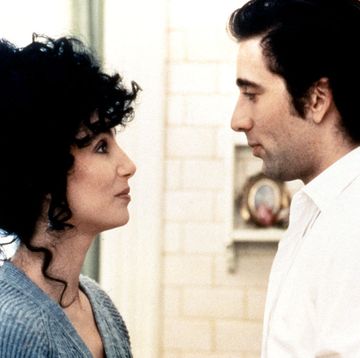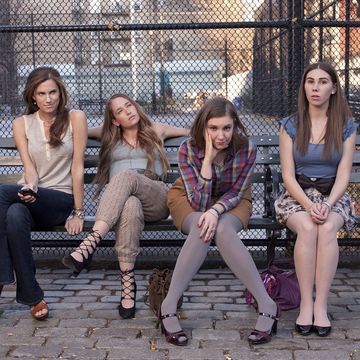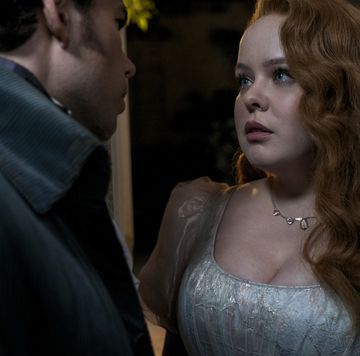New installments of the BBC's modern-day Sherlock Holmes story are so infrequent and so brief that it's difficult to judge the show by any objective measure. Fans, along with many critics, seem to fall broadly into two camps: either the long absence makes their hearts grow so much fonder that they blindly adore every moment of new footage, or the long wait raises their expectations so high that the show inevitably falls short.
In the past, I've fallen firmly into the first camp – my love for all things Sherlock Holmes goes back for years, and I love the BBC's incarnation in particular with a moderately alarming, Tumblr-worthy intensity that often blinds me to its flaws. There was a lot to love in the fourth series of Sherlock, which introduced its most genuinely sinister villain yet in Toby Jones's Culverton Smith, intensified the thorny, intimate bond between Benedict Cumberbatch and Martin Freeman's Holmes & Watson, and expanded on the Holmes family's tragic backstory in an epic and profoundly stressful finale.
But plot holes abounded, to a degree that felt uncharacteristic for these once-meticulous writers. The most glaring loose end came in the final moments of the season's first episode "The Six Thatchers," in which Sherlock is given a seemingly important note from John. At this point in the narrative, the death of John's wife Mary has driven a wedge between he and Sherlock, with John holding his reckless former BFF responsible for the tragedy (more on which later). "He'd rather see anyone but you," says Louise Brealey's Molly, before handing Sherlock the mysterious note and telling him "You don't need to read it now."
It's a very deliberate, very specific moment that feels insane in retrospect, because that note might as well never have existed. The following episode "The Lying Detective" is all about John and Sherlock's fractured relationship, their brutal conflict and their touching reconciliation – and yet at no point does either of them bring up whatever was in the note. Molly handing Sherlock a note that he doesn't read serves no narrative purpose at all, unless it's setting up a payoff down the line. Did Moffat and Gatiss forget what they had written? Did the payoff end up on the cutting room floor? And if so, shouldn't somebody have edited out the setup?
There's an equally baffling loose end in season finale "The Final Problem, wherein Sherlock's long-lost and deeply unstable sister Eurus sends a "patience bomb" to 221B Baker Street via drone. It will explode if anyone moves, and so Sherlock, his brother Mycroft (Mark Gatiss) and John all freeze in place, exchanging a few tense words before seemingly resigning themselves to their inevitably grim fate. All three move at once, detonating the bomb – Sherlock and John jump through the windows, a two-story drop to the street below – and despite being caught in the blast everyone gets out unscathed. The apartment is destroyed, but the trio don't have a scratch on them in the next scene, and there's not even a throwaway line by way of explanation. Why include the explosion at all, except as an excuse for some questionable CGI?
The third plot hole that bothered me was more of an emotional disconnect at the core of the Sherlock/John conflict. John irrationally blaming Sherlock for Mary's death thanks to his own misplaced self-loathing is one thing – he's wrong, but that's ultimately acknowledged within the show, and it makes sense because grief is weird. What doesn't make sense is that Sherlock, the logic machine whose worldview is defined by near-superhuman powers of observation, would go along with John's faulty reasoning. It's well established within the show that Sherlock is brutally honest to the point of being tactless, so he's not keeping quiet out of sensitivity to John's feelings. During their confrontation in the morgue in "The Lying Detective," I kept waiting for Sherlock to finally snap and say, "Clearly I did not kill your wife, you're blaming me because x, y and z" – which, by the way, would have made a lot more sense as a precursor to John beating the crap out of him.
The gradual process of humanizing a character who once called himself a "high-functioning sociopath" has been fascinating to watch throughout Sherlock, but this fourth season may have taken things a step too far, making its hero essentially an emotional punching bag, with little of his former chilly intellect and sharp, strange edges. But with that being said, "The Final Problem" took that approach to its logical extreme – with Eurus forcing Sherlock through a maze of tasks that each represented a different kind of psychological torture – and it was extraordinarily compelling to watch, leading up to the revelation of a bone-chilling childhood trauma.
Though theoretically a show about mystery and deduction and reasoning, Sherlock's bread and butter lies in detailed emotional beats that border on the best kind of melodrama, and this has never been more true than in the electrifying moment when Sherlock is forced to choose between shooting John or his brother Mycroft. A more understated character highlight for me was the revelation that John had an emotional affair with another woman prior to Mary's death, albeit only via text message. It was a provocative choice that rankled some fans, but seemed wholly in keeping with who Freeman's John Watson has always been – a retired soldier who is fundamentally restless, drawn to Sherlock's lifestyle because he craves the adrenalin of war. And also kind of a womanizer.
Because it is on so rarely, and because its stars are now so famous, and because it has become a kind of cultural phenomenon, Sherlock is "event television," which is arguably as much a blessing as a curse. From once-humble beginnings (the BBC debuted it back in 2010 in an inauspicious summer slot) the show has morphed, and every episode now seems duty-bound to be a game-changing spectacle, packed with twists and rug-pulls and implausible action flourishes. What would take real confidence, at this point, is to dial it back. In its early seasons Sherlock leaned more heavily into the simple pleasures that defined Arthur Conan Doyle's stories – Holmes and Watson investigating actual mysteries together, without anyone being shot or blowing up or overdosing on heroin.
The show has almost limitless potential to play; Cumberbatch and Freeman's chemistry speaks for itself, as does Moffat and Gatiss's boundless love and enthusiasm for the source material. If there is a fifth series of Sherlock, my one hope is that it dares to think smaller.

Emma Dibdin is a freelance writer based in Los Angeles who writes about culture, mental health, and true crime. She loves owls, hates cilantro, and can find the queer subtext in literally anything.
